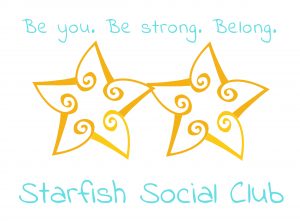Facebook and Social Skills

I joined Facebook in 2006 when it was still a relatively small community. One thing I loved about Facebook is that the social norms were different from in-person interaction, and often times made things easier on me. I can connect with people and not be criticized for my lack of eye contact or vocal tone.
What does that even mean? Do you even know how to use Facebook grandma? Turns out she did and also learned how to use an iPad way before I’d even seen one. To give you an idea of some of the posts my grandma was referring to, here is an example:
Dear girl who cheated off my exam today,You’re a jerk.Unfortunately for you, So am I. I put all the wrong answers in for you to copy and waited until you left to put the right ones in. It’s called studying.sincerely,Your passive aggressive classmate, Alix
Alix’s childhood was hindered by undiagnosed Aspergers until she learned to harness her gifts. Now, at 21 years old, she has already done what most people can only hope to do in their lives; speak to the UN, make a major scientific contribution, give a TED talk, and travel the world.
Alix was misdiagnosed as a child. Told she was strickened with a plethora of mental illnesses and learning disabilities, she spent years desperately seeking answers until she found the right kind of help that enabled her to flourish; piano playing, composing, ballet and science.
Alix is an undergraduate student in Vermont working toward a degree in neuroscience. She is also currently working on several research projects studying autism and schizophrenia. She utilizes the college learning disabilities accommodation program and now lives comfortably with her challenges. Aspergers101 is thrilled to offer you the insights and brilliance of Alix!









 We all appreciate how useful it is to understand how other people are feeling, yet it’s a skill which is very much taken for granted. For those on the autism spectrum it is not always a natural ability. To help in learning and practice I have compiled a number of examples of people showing emotions – both in real time and slow motion.
We all appreciate how useful it is to understand how other people are feeling, yet it’s a skill which is very much taken for granted. For those on the autism spectrum it is not always a natural ability. To help in learning and practice I have compiled a number of examples of people showing emotions – both in real time and slow motion.